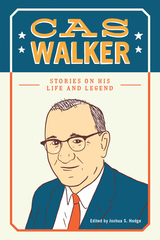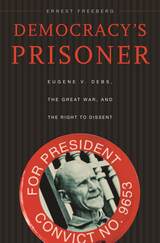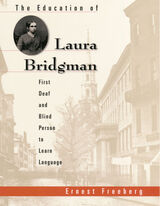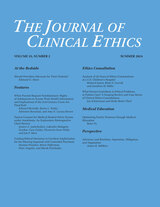
Businessman, politician, broadcasting personality, and newspaper publisher, Cas Walker (1902–1998) was, by his own estimation, a “living legend” in Knoxville for much of the twentieth century. Renowned for his gravelly voice and country-boy persona, he rose from blue-collar beginnings to make a fortune as a grocer whose chain of supermarkets extended from East Tennessee into Virginia and Kentucky. To promote his stores, he hosted a local variety show, first on radio and then TV, that advanced the careers of many famed country music artists from a young Dolly Parton to Roy Acuff, Chet Atkins, and Bill Monroe. As a member of the Knoxville city council, he championed the “little man” while ceaselessly irritating the people he called the “silk-stocking crowd.”
This wonderfully entertaining book brings together selections from interviews with a score of Knoxvillians, various newspaper accounts, Walker’s own autobiography, and other sources to present a colorful mosaic of Walker’s life. The stories range from his flamboyant advertising schemes—as when he buried a man alive outside one of his stores—to memories of his inimitable managerial style—as when he infamously canned the Everly Brothers because he didn’t like it when they began performing rock ’n’ roll. Further recollections call to mind Walker’s peculiar brand of bare-knuckle politics, his generosity to people in need, his stance on civil rights, and his lifelong love of coon hunting (and coon dogs). The book also traces his decline, hastened in part by a successful libel suit brought against his muckraking weekly newspaper, the Watchdog.
It’s said that any Knoxvillian born before 1980 has a Cas Walker story. In relating many of those stories in the voices of those who still remember him, this book not only offers an engaging portrait of the man himself and his checkered legacy, but also opens a new window into the history and culture of the city in which he lived and thrived.

In 1920, socialist leader Eugene V. Debs ran for president while serving a ten-year jail term for speaking against America’s role in World War I. Though many called Debs a traitor, others praised him as a prisoner of conscience, a martyr to the cause of free speech. Nearly a million Americans agreed, voting for a man whom the government had branded an enemy to his country.
In a beautifully crafted narrative, Ernest Freeberg shows that the campaign to send Debs from an Atlanta jailhouse to the White House was part of a wider national debate over the right to free speech in wartime. Debs was one of thousands of Americans arrested for speaking his mind during the war, while government censors were silencing dozens of newspapers and magazines. When peace was restored, however, a nationwide protest was unleashed against the government’s repression, demanding amnesty for Debs and his fellow political prisoners. Led by a coalition of the country’s most important intellectuals, writers, and labor leaders, this protest not only liberated Debs, but also launched the American Civil Liberties Union and changed the course of free speech in wartime.
The Debs case illuminates our own struggle to define the boundaries of permissible dissent as we continue to balance the right of free speech with the demands of national security. In this memorable story of democracy on trial, Freeberg excavates an extraordinary episode in the history of one of America’s most prized ideals.

In the mid-nineteenth century, Laura Bridgman, a young child from New Hampshire, became one of the most famous women in the world. Philosophers, theologians, and educators hailed her as a miracle, and a vast public followed the intimate details of her life with rapt attention. This girl, all but forgotten today, was the first deaf and blind person ever to learn language.
Laura’s dark and silent life was transformed when she became the star pupil of the educational crusader Dr. Samuel Gridley Howe. Against the backdrop of an antebellum Boston seething with debates about human nature, programs of moral and educational reform, and battles between conservative and liberal Christians, Ernest Freeberg tells this extraordinary tale of mentor and student, scientist and experiment.
Under Howe’s constant tutelage, Laura voraciously absorbed the world around her, learning to communicate through finger language, as well as to write with confidence. Her remarkable breakthroughs vindicated Howe’s faith in the power of education to overcome the most terrible of disabilities. In Howe’s hands, Laura’s education became an experiment that he hoped would prove his own controversial ideas about the body, mind, and soul.
Poignant and hopeful, The Education of Laura Bridgman is both a success story of how a sightless and soundless girl gained contact with an ever-widening world, and also a cautionary tale about the way moral crusades and scientific progress can compromise each other. Anticipating the life of Helen Keller a half-century later, Laura’s is a pioneering story of the journey from isolation to accomplishment, as well as a window onto what it means to be human under the most trying conditions.
READERS
Browse our collection.
PUBLISHERS
See BiblioVault's publisher services.
STUDENT SERVICES
Files for college accessibility offices.
UChicago Accessibility Resources
home | accessibility | search | about | contact us
BiblioVault ® 2001 - 2024
The University of Chicago Press









